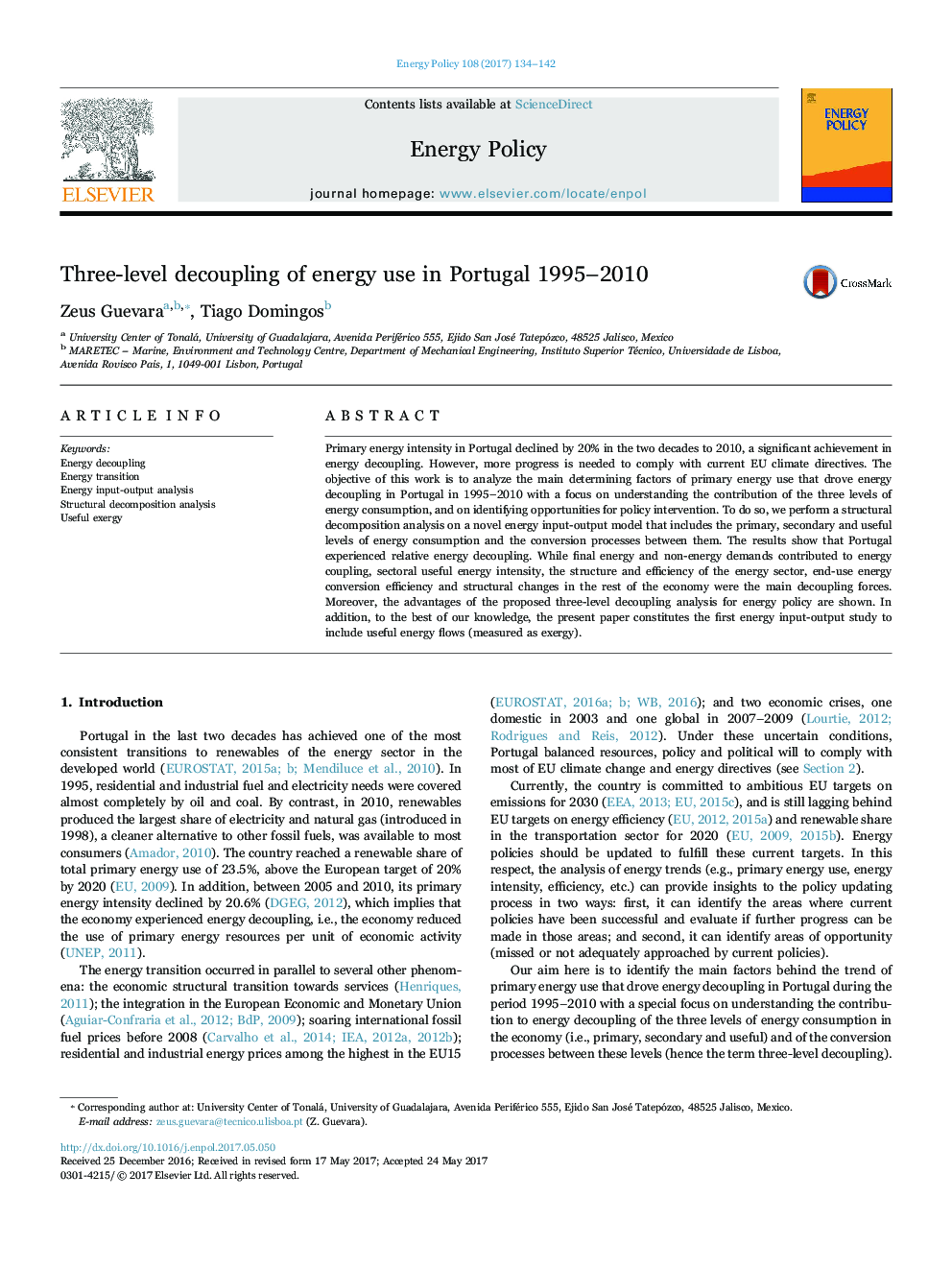| Article ID | Journal | Published Year | Pages | File Type |
|---|---|---|---|---|
| 5105641 | Energy Policy | 2017 | 9 Pages |
Abstract
Primary energy intensity in Portugal declined by 20% in the two decades to 2010, a significant achievement in energy decoupling. However, more progress is needed to comply with current EU climate directives. The objective of this work is to analyze the main determining factors of primary energy use that drove energy decoupling in Portugal in 1995-2010 with a focus on understanding the contribution of the three levels of energy consumption, and on identifying opportunities for policy intervention. To do so, we perform a structural decomposition analysis on a novel energy input-output model that includes the primary, secondary and useful levels of energy consumption and the conversion processes between them. The results show that Portugal experienced relative energy decoupling. While final energy and non-energy demands contributed to energy coupling, sectoral useful energy intensity, the structure and efficiency of the energy sector, end-use energy conversion efficiency and structural changes in the rest of the economy were the main decoupling forces. Moreover, the advantages of the proposed three-level decoupling analysis for energy policy are shown. In addition, to the best of our knowledge, the present paper constitutes the first energy input-output study to include useful energy flows (measured as exergy).
Related Topics
Physical Sciences and Engineering
Energy
Energy Engineering and Power Technology
Authors
Zeus Guevara, Tiago Domingos,
